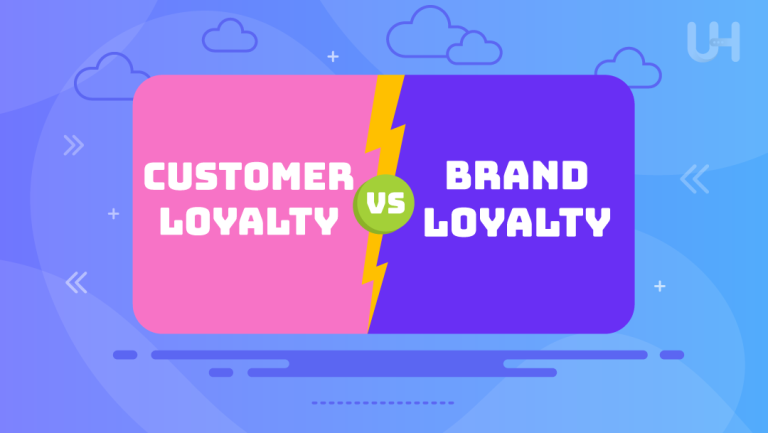Personalized marketing refers to the strategy of customizing marketing efforts to specific customer needs, preferences, behaviors, and demographics. With the use of data, messages, and offers can now be tailored and be on the same wavelength as intended audiences. This is as opposed to traditional marketing approaches where one-size-fits-all approaches are used.
The secret to separating a business from the digital clutter is through personalization in marketing. Amidst millions of ads and information provided to consumers each day, it has become very crucial for brands to connect with them.
What is Personalized Marketing?
Personalized marketing is a targeted approach with which different messages and offers are offered to different customers. The traditional method of marketing did not differ in the fact that the same content is presented to all audiences; whereas, personalized marketing employs unique data to meet specific consumer needs. It increases engagement and enhances the customer experience.
Customer information is what creates a personal experience. This information helps businesses understand preferences interests and behaviors to give relevant content. Using customer insights allows brands to build meaningful relationships and loyalty. It involves a restricted business strategy that can ensure all marketing functions act in unison to help nurture leads, profitability, and long-term success in the marketplace.
The Evolution of Personalized Marketing
Personalized marketing has greatly changed with time. From the historical perspective, marketers depended more on the broad demographics for the segmentation of their audiences. Technology has changed the trend over the years.
Technological advancements, especially artificial intelligence, have revolutionized personalized marketing. The algorithms can study the behavior of the customer and predict the future course of action. This gives a business the ability to develop dynamic content that suits individual preferences in real-time. Thus, personalized marketing is more precise and effective than ever before.
How Personalized Marketing Differs from Other Marketing Strategies
Personalized marketing is unique compared to other approaches, such as segmentation. It addresses the individual instead of the group. While segmentation can be said to divide the audience into categories because of their shared characteristics, personalization focuses on each customer’s specific preferences. It is to this extent that personalization allows brands to connect with consumers better. Solutions like instant VPS allow businesses to scale their server needs quickly, ensuring seamless performance without delays, especially during high-demand marketing campaigns.
Personalized marketing must have a customer journey. Brands need to understand all the stages of a customer’s experience, from when they are aware of a need to when they make the decision. Marketing efforts in alignment with the customer journey can help businesses provide relevant content and offers at each step. This approach not only enhances the customer experience but also increases the chances of conversion.
Transform Your Marketing with Personalized Strategies!
Ready to elevate your marketing strategy with personalized approaches? Discover how Ultahost can support your business needs with reliable social network hosting. Learn more and get started today!
The Importance of Customer Data in Personalization
Customer data is essential for creating tailored marketing experiences. It enables brands to understand consumer preferences and behaviors, leading to more effective engagement strategies.
Types of Data Used in Personalized Marketing
Understanding the different types of customer data is crucial for effective personalized marketing. Each type serves a unique purpose and contributes to a deeper insight into consumer behavior.
Demographic Data
Demographic data falls into the type of data that includes age, gender, income, education level, and location. This kind of data gives a basic understanding of who the customers are. For example, a clothing retailer may target young adults with specific fashion trends while marketing classic styles to an older audience. Brands can then segment their audience more effectively and tailor their marketing strategies to meet the specific needs of each group by analyzing demographic data.
Behavioral Data
This reflects the way the customer interacts with the brand across multiple touchpoints. This includes, but is not limited to, online activities, which range from website visits to actual click-through rates, and actual purchase history of the customers, followed by engagement with its marketing communications. Such data analysis helps identify patterns and predicts future behaviors. For instance, a customer examines outdoor equipment daily without purchasing something; the brand awareness then forwards promotions to a customer for potential sale. The accessibility of behavioral data allows brands to build focused and relevant marketing strategies that work well with individual customers.
Psychographic Data
Psychographic information represents the attitudes, interests, values, or lifestyles of customers. Thus, it is above demography to describe what influences buying behavior. This can thus be obtained from questionnaires, focus groups, as well as social media, for example, a sustainable brand selling products would therefore target consumers who are concerned with sustainability and responsible purchasing. Using psychographic results, businesses come up with messages that appeal to one’s values and, by extension, connect them emotionally to the message.
Data Collection Methods
Personalized marketing requires the appropriate collection of relevant and accurate data about customers. Businesses use various means to obtain information, each having strengths.
Surveys and Feedback
Surveys and mechanisms for feedback allow businesses to have direct insights from customers. Email surveys, website pop-ups, or social media marketing can be part of the process. Questions regarding customers’ preferences, satisfaction levels, and experiences with the brand give data that is of great use for personalization. For instance, restaurants may use feedback forms to understand menu preferences so they can offer tailored options that best suit customer tastes. Continuously seeking feedback also informs customers that their opinions count, thus enhancing engagement.
Website Analytics
Website analytics tools, such as Google Analytics, provide the most detailed view of what exactly is happening on a given company’s website. Tracking metrics include page views, average session duration, bounce rates, and even user paths through the site. Analysis in all these ways has helped businesses identify which pages are of interest and how far users will go. From these insights, brands can fine-tune their website experience to their target customers’ expectations and preferences. For instance, most cart-leaving e-commerce customers may tell an e-commerce website to closely examine the checkout process for possible improvements.
Social media generates ample amounts of information on customer interactions and preferences. A business may track the likes, shares, comments, and demographic breakdown of its followers to understand how well the audience is engaging with its content. Social media insights inform brands on what kind of content is being most liked, commented upon, or shared. For example, a beauty brand can be made aware that its tutorial video content is generating much higher engagement than product adverts. The brand will thus react by creating more educational content. Furthermore, tracking social media interactions allows brands to respond to customer questions and concerns in real time and therefore increase overall customer satisfaction.
Ethical Considerations in Data Collection
While businesses must collect customer data for customized marketing, ethical concerns should be addressed in a way that instills trust and adheres to the set regulations.
Transparency and Consent
Establishing trust with the consumer translates to being transparent about the practices of collecting data. Businesses should communicate to customers what data is being collected, how it will be used, and with whom it may be shared. Obtaining explicit consent before collecting personal information is essential. This can be achieved through clear opt-in mechanisms and privacy policies. For instance, an online retailer may require customers to check a box indicating their agreement to receive marketing communications. This is how making transparency and consent a priority helps brands feel safe and respected by their customers.
Best Practices for Data Protection
Implementing good data protection practices is one of the most important safety measures for customer information. Companies should have encryption protocols, secure storage solutions, and regular security audits for sensitive data. Not least, there are data protection regulations such as GDPR in the EU and CCPA in California; compliance is required. Data collection, storage, and usage are all covered through such regulations. For instance, brands have to ensure that their customers are presented with an opportunity to see their data and have access to opting out of such data collection. Following best practices in the industry, the business protects consumer information and builds a good reputation while creating long-term customer relationships.
Benefits of Personalized Marketing
Personalized marketing enriches customer experiences by allowing messages to be tailored based on their preferences. As a result, it generates higher engagement rates, higher conversion rates, and a higher retention rate of customers.
Improved Customer Experience
Personalized marketing greatly enhances the customer experience. A brand can make its marketing efforts more relevant by tailoring messages according to the individual preferences of the target audience. For instance, a clothing retailer may send personalized recommendations for a particular customer based on his purchase history and the history of what he has been browsing for.
This method gives more customer satisfaction. Each time the consumer gets messages and offers that go with their interests, they feel appreciated and understood. Therefore, there is a likelihood that they will engage with the brand and buy it, which enhances their experience in general.
Higher Engagement Rates
Personalized marketing is going to generate a higher rate of engagement through different channels. For instance, when you are sending emails with personalization according to the interests of the recipient, then there will be a better open rate. Many studies have been able to present significant numbers of increase by using personalized subject lines and content in emails rather than non-personalized ones.
Moreover, the personalization of engagements in social media becomes more potent. It enhances the interactive community, which increases interaction rates among customers and makes them comment about their experiences with brands, thereby increasing brand exposure.
Improved Conversion rates
That directly affects conversion rates on personalized marketing. Research finds that campaigns run on personalized marketing increase the conversion rate by a fewfold as compared to conventional methods. For instance, product recommendation related to a user’s behavior increases a client’s chance of purchasing stuff.
The other ways through which personalization can help brands achieve successful conversion strategies include the following: retargeting Google ads and reminding the customer to complete their purchase by showing the products that they viewed. This approach exploits the intent of the customer, which may increase sales and revenue.
Boost Your Connections with CRM hosting!
Supercharge your customer relationships with personalized marketing! Explore Ultahost’s CRM hosting solutions today and take your business to the next level. Unlock new possibilities and drive lasting growth with tailored CRM solutions!
Enhanced Customer Loyalty and Retention
Personalized marketing also boosts customer loyalty and retention. Long-term relationships are bound to build a loyal customer base returning for repeat purchases. Personalized experiences let customers feel special and valued, thus strengthening their emotional bond with the brand.
Several brands are high in customer loyalty due to personalization efforts. One such example is Starbucks. Starbucks uses a loyalty program whereby it personifies offers to people based on their purchasing patterns. It does not only cause repeat visitation but builds customer loyalty, hence providing lifetime value.
Improved Data Utilization
Personalized marketing allows the better utilization of data. Analytics helps brands constantly improve their marketing approach. Proper analysis of customer data can create trends, preferences, and behaviors for a business to better present its messaging and message.
More importantly, findings from targeted campaigns can be used to guide future marketing strategies. For example, if engagement across a particular product category through the campaign was high, then brands can consider aligning their future marketing strategies with amplifying products that have yielded high engagement.
Examples of Personalized Marketing
Some of the leading brands have successfully applied the concept of personalized marketing. Here are three prime examples:
Example 1: Amazon’s Recommendation System
Amazon’s recommendation system is a prime example of personalized marketing. The company analyzes customer behavior by using past purchases and history in browsing to recommend a particular product. This algorithm considers several things such as item similarity and customer ratings that create tailor-made recommendations for each user. These are personal suggestions that complement the shopping experience and see customers spend more.
Example 2: Netflix’s Personalized Viewing Recommendations
A complex algorithm creates personalized viewing recommendations for people on Netflix. This algorithm analyzes viewer behavior, including watch history, ratings, and viewing patterns, to predict what users are likely to enjoy. The result is a homepage that features shows and movies aligned with individual tastes. This personalization has led to remarkable viewer engagement; research indicates that personalized recommendations contribute to over 80% of the content watched on Netflix. By catering to the preferences of viewers, Netflix keeps viewers engaged and reduces the churn rates.
Example 3: Spotify’s Personalized Playlists
Spotify is great at creating individualized playlists to increase consumer satisfaction. Using algorithms in listening habits, favorite genres, and playlists created by users, Spotify generates “Discover Weekly” and “Release Radar,” among many other playlists, which appeal to user engagement and also increase user satisfaction by engaging listeners with music that’s tailored to their tastes. In addition, the personalized playlists that Spotify offers contribute to its retention rate because the subscribers keep themselves engaged with a platform that offers them relevant content constantly. Personalization is the basis of the loyal user pool of Spotify.
Different Forms of Personalized Marketing

Personalized marketing varies from one channel to another. Here are the effective methods:
Email Marketing Personalization
Of course, one of the most common types of personalized messages is through email marketing. Brands are now using tools for personalized subject lines, curated content, and relevant offerings based on user preferences to make them work. Now, a retail brand is likely to send personalized mailers that are products based on what a customer used to buy before. Stats show that even personalized messages can get open rates, often 29% higher compared with a standard email, meaning this works great in attaining customers’ attention too.
Website Personalization
Website Personalization refers to the process of modifying content dynamically based on user behavior. Brands can design experiences by showing users the relevant products, offers, and messages. For instance, an e-commerce website might display to users products that they had previously viewed or those similar to their purchase history. Companies use user data to make shopping a more rewarding experience. This has increased user engagement and conversions.
Social media advertising allows businesses to reach specific audiences based on consumer data. Facebook marketing and Instagram marketing, can target advertisements for targeted customer groups. Demographics, interests, and internet-related activities all serve as available resources through which to determine whether their advertisements have connected with an audience. The engagement results of such customized social media campaigns were indeed higher. For example, the same brand may remind the potential customer of the product he viewed if it had used retargeting ads, thereby significantly increasing the chances of sale. This strategy is an example of how having personal data increases chances for greater marketing effectiveness.
Implementing a Personalized Marketing Strategy
Know the demographics and behaviors of your customers so that you can tailor the content. Setting goals and objectives in sync with the business strategy is also essential. Finally, use the right tools and technologies that would enable the collection of data and enable personalization efforts.
Best Practices for Personalization
Very highly critical to consistency throughout channels to ensure effective personalization so that it can allow seamlessness whether interacting through emails, social media, or directly on the website. Constant testing and optimization need to be done to keep enhancing effectiveness. And responding to changes in preferences among customers.
Measuring Success in Personalized Marketing
The three basic key performance indicators to gauge the effectiveness are Conversion rates, engagements, and retention. Apply to measure effectiveness tools such as Google Analytics and marketing automation, by which you then monitor it continuously and fine-tune the strategy to result in something better.
Challenges of Implementing Personalized Marketing
Implementing personalized marketing comes with challenges such as data privacy concerns and the need for compliance with regulations. Additionally, businesses face hurdles in resource allocation and balancing automation with the human touch in customer interactions.
Data Privacy Issues
The major challenges of personalized marketing are data privacy issues. Companies have to operate under strict regulations such as GDPR and CCPA calling for transparency in how companies collect and use data. Both laws require that companies set up information on the use of data and their role for the customers. This is ethical data practice.
Resource Allocation
Resource allocation is fundamentally important in personalized marketing. The cost of personalization marketing technologies is always high and thus difficult for small and medium-sized businesses to maintain. Advanced data analytics, CRM optimization, and marketing automation tools can be expensive to invest in. Hiring or training staff with competencies in data analysis or digital marketing can also be a cost factor; hence the need for balancing these costs versus expected returns on investment.
Balancing Personalization with Automation
The right balance between personalization and automation is one of the biggest challenges of personalized marketing. While automation can be taken as a measure to increase efficiency and consequently streamline processes, over-reliance on it can result in communication messages that sound generic rather than personal, just what most customers have been yearning for. Over-automation alienates those consumers who crave meaningful involvement. Brands, therefore, must embrace messages of specificity through real customer engagement and ensure that the communication they effect on their clients remains humanly genuine, which strengthens the relationship and maximizes customer experience.
Future Trends in Personalized Marketing

The future of personalized marketing will focus on integrating AI and machine learning to deliver real-time, tailored experiences. Additionally, brands must adapt to evolving consumer expectations by leveraging hyper-personalization to create meaningful interactions.
Predictions for the Future of Personalized Marketing
One major area of importance is that of AI with machine learning. With this technology, brands can now analyze colossal volumes of data at velocity and discern trends and insights to develop even more effective marketing campaigns. AI-based algorithms will produce real-time content to help drive customer interaction and, thereby, an overall enhanced experience.
Another trend is the emergence of hyper-personalization. Hyper-personalization is personalization plus; it uses real-time data and predictive analytics to create much more highly personalized experiences. Brands will draw data from many sources – including social media interactions and browsing behavior – to provide customized content, recommendations, and offers. The trend will make companies even more relevant and engaging to customers in their customer interactions, further leading to increased loyalty and satisfaction.
The Impact of Evolving Consumer Expectations
The expectations of consumers always change with technology. Customers require an experience that mirrors their individual preferences and needs. Therefore, businesses have to alter their strategies to adapt to these future demands that are to deliver relevant content at the right time through preferred channels.
In response to such fluctuating expectations, brands have to invest in getting closer to their customers. The use of data analytics would provide insight into customer preferences, behaviors, and buying patterns. Businesses that remain ahead of consumer trends and adjust marketing strategies in advance will be able to build more meaningful relationships with audiences and encourage long-term loyalty while reinforcing brand reputation.
Role of Content in Personalized Marketing
Content is king, it is the biggest influencer in personalized marketing. The type of content will be varied, which includes blogs using blog hosting, videos, and infographics, that engage the audience, depending on the interest that has been built by them. Therefore, to design a campaign for personalized content, first of all, the nature of preferences and behavior should be known. A company should understand customer data, thereby deriving the themes and topics accordingly. Some successful examples of content personalization include personal show recommendations by Netflix and Spotify curated playlists. So, therefore, a brand can use the content efficiently to deliver an experience to the users to enhance their engagement.
Impact of Mobile and Emerging Technologies
Mobile and other emerging technologies make mobile marketing highly personalized. A firm can reach a customer on the grassroots level using apps and notifications, offering real-time context messaging about behavior and location. Voice search optimization and smart assistants also take up significant importance in personalization. People would be able to obtain very customized answers and suggestions through these devices when interacting, for example, Alexa or Google Assistant. The future of augmented reality and virtual reality offers vast potential for personalization. Brands can create experiences that are more immersive, personalized, and tailored to the individual preferences of customers, thereby changing how they interact with products. With these technologies, businesses can connect more deeply with their audience and deliver extremely personalized experiences.
Conclusion
Personalized marketing is one of the significant features of today’s digital space. It helps businesses interact with customers at a different level, making them have a better experience. A business can increase engagement and loyalty through personalized messages and offers to individual preferences. Businesses that use personalized marketing strategies will be able to gain insight from customer data, which may lead to improved conversion rates and long-term relationships. Personalized marketing enables businesses to create deep connections with customers and can help a business stand out in a competitive marketplace.
To further enhance your marketing efforts, consider integrating effective communication through email. Discover Ultahost’s affordable email hosting solutions to streamline your outreach and engage customers effectively. Start building stronger relationships with your audience today!
FAQ
What is personalized marketing?
Personalized marketing tailors messages and experiences to individual customers based on their preferences and behaviors, enhancing engagement and relevance.
How does personalized marketing differ from traditional marketing?
Unlike traditional marketing, personalized marketing focuses on unique customer experiences, leveraging data to deliver tailored messages.
What are the main benefits of personalized marketing?
Benefits include enhanced customer experience, higher engagement rates, improved conversion rates, and increased customer loyalty through tailored interactions.
How does data play a role in personalized marketing?
Data helps businesses understand customer preferences, allowing them to create tailored marketing strategies that resonate with individual users.
What types of data are used in personalized marketing?
Common data types include demographic, behavioral, and psychographic data, which help companies better understand their audience.
Are there any ethical concerns with personalized marketing?
Yes, ethical concerns include data privacy and consent, necessitating transparency in data collection and adherence to regulations like GDPR.
How can businesses implement personalized marketing strategies?
Companies can implement personalized marketing by identifying audience segments, setting clear goals, and utilizing appropriate tools for data analysis.
What does the future hold for personalized marketing?
The future will likely see increased integration of AI and emerging technologies like AR and VR, enhancing personalized customer experiences.














